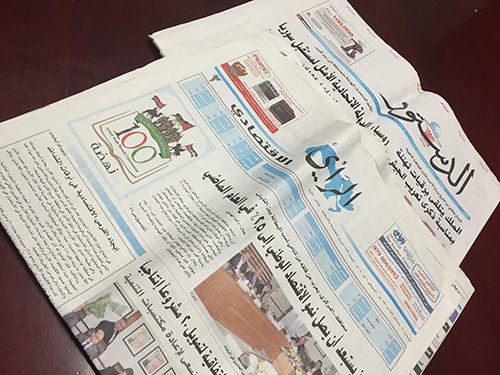The phone call came just as our conversation about the escalating crackdown on Jordanian media hit its stride. Lina Ejeilat, the co-founder of the news website 7iber (pronounced hebber), apologized and said she had to take the call. It was 7iber’s lawyer and it was important. For years the website had fought against a requirement that all Jordanian news websites register with the government. I watched as Ejeilat learned the fight was finally over. 7iber would have to pay a 1,000 Jordanian dinar fine (about USD$1,400) for operating without a license.
The decision did not come as a surprise to Ejeilat. Nor would it come as a surprise to a dozen Jordanian journalists and analysts I met on a CPJ mission in late February. They all said the same thing: last year marked one of the worst years in memory for press freedom in Jordan and yet the world, distracted by a myriad of crises in the region, barely seemed to notice.
But Jordanian journalists noticed. At least 11 of their colleagues were detained in relation to their work over the past year, according to CPJ research. “I’ve never felt a greater chilling effect in the past 30 years,” veteran journalist and media expert Yahia Shukkeir told me.
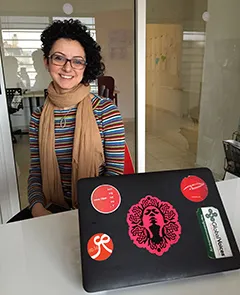
It didn’t have to be this way. As the Arab Spring protests gathered steam five years ago, the Jordanian government made several positive steps, including creating a national dialogue committee and establishing a constitutional court. In March 2011, King Abdullah II ordered the government to develop a media strategy “founded on the principles of freedom and responsibility” to serve Jordan, a “nation of freedom and innovation that accepts the opinion of the other and respects pluralism, justice, and the rule of law.”
But reactionary forces in the government pushed back, passing a series of legal amendments that tightened the grip on Jordanian media. First came the 2012 amendments to the press and publications law, forcing all news websites to register with the government. The government then moved in 2013 to block hundreds of websites that had failed to comply.
“We tried to fight the law to take a moral stance against censorship,” Ejeilat said. But as the struggle carried on for two years, Ejeilat told me she began to ask whether “we devote our resources to prove a point or do we go back to the work of producing content and reaching our audience?”
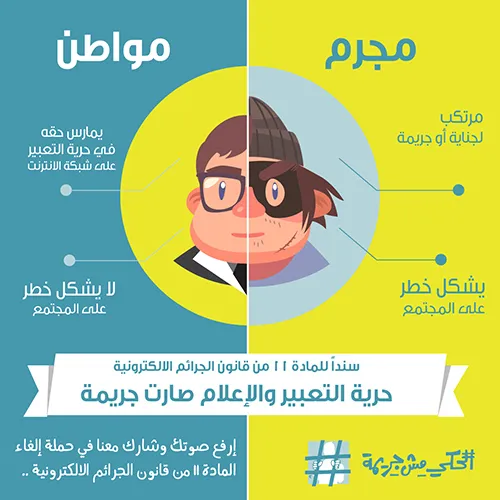
Despite the shortcomings of the amended press and publications law, it at least prevented the detention of journalists for press-related cases, which would now include news websites registered under the law. But in 2014, parliament amended the anti-terrorism law to expand its reach to online activity. And in 2015, a ruling on the cybercrime law overrode the press law’s ban on jailing the media.
These changes effectively allow the government to arbitrarily choose when to afford journalists the protections of the press and publication law and when to treat them no differently than suspects of terrorism or cybercrime.
The laws are part of a confusing web of more than 20 laws and regulations that govern the Jordanian media, according to a 2015 UNESCO Assessment of Media Development in Jordan. Many contain contradictory provisions and vague terminology that opens the door to arbitrary application of the law.
“It’s like walking in a fog,” one journalist, who asked for anonymity for fear of retribution, told me. “You never know what will get you in trouble. At least under martial law, you knew what got you into trouble. But there’s no more pattern. That’s the whole point of the laws. They are very strategic in letting the government be arbitrary.”
Jumana Mustafa, a journalist for the independent Aramram Web TV, shared this view, telling me, “You cannot predict when you will be charged or with what law.”
CPJ documented the cases of 11 journalists who were detained last year under the anti-terrorism law, cybercrime law, and penal code for crimes such as publishing false news, damaging Jordan’s foreign relations, demeaning the government, and defamation. The number of detentions was a departure from previous years when a journalist would occasionally be detained. Even journalists working for state-owned outlets or outlets considered close to the security services were not spared.
“Often the journalist who goes to court is found innocent, but the process of court is in of itself a punishment, especially if the journalist is detained during the process,” 7iber’s Ejeilat said.
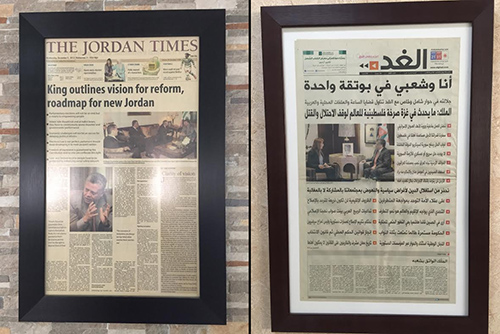
The detentions also serve as a message to other journalists. A 2014 poll of journalists, conducted by the local independent Center for Defending Freedom of Journalists found that 95 percent of Jordanian journalists said they practiced self-censorship.
“If not for self-censorship, more journalists would be on trial or in jail,” said Rana Sabbagh, the head of Arab Reporters for Investigative Journalism, an Amman-based media organization promoting investigative journalism in the Middle East. Sabbagh said she has never seen a time of greater censorship in her 33 years as a journalist, adding, “Unlike in many countries, the system does not silence critical voices, but it can cripple you emotionally.”
Jumana Ghunaimat, editor-in-chief of the independent daily Al-Ghad, agreed, saying her job as an editor was to both push red lines drawn by the government and society but also to keep the newspaper running. “I’m a journalist, but I don’t have a death wish. You have to always think about how to keep this paper without crisis.”
Part of that system, as many of the journalists with whom I spoke pointed out, goes beyond the government to the public, which to a large extent has acquiesced and even supported restrictions on the media. In some cases, it is the public who react the most to sensitive issues including religion, culture, and Israel, several of the journalists told me. They also said the public views the Jordanian press as unprofessional and unethical, and many of the journalists themselves accused colleagues of mudslinging, rumor mongering, corruption, and even blackmail.
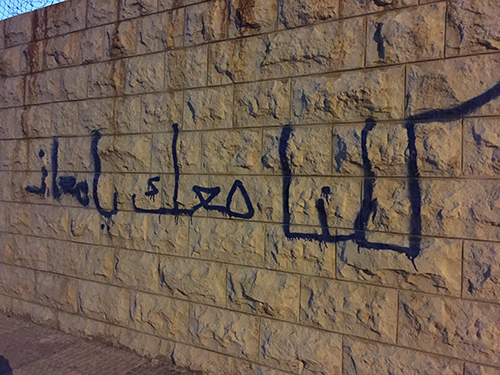
The public acquiescence to censorship stems from fear of economic insecurity, of terrorism, and of becoming the next Syria, the journalists told me. And in that fear, many Jordanians seem to have accepted the government narrative that freedoms need to be curtailed for the sake of economic and physical security.
The result is a collective shrug each time a journalist is arrested, and a public that forgets that good journalism addresses the very issues it fears.
As one Jordanian political analyst, who asked for anonymity for fear of retribution, said, “If press freedom was only a press issue, then it’s only in the interest of journalists. But press freedom is a freedom for society. They think journalists are asking for favored treatment but in reality, media is a tool for change, awareness, and reform.”
It’s a frustrating situation for Jordan’s numerous journalists working hard every day to report critically but fairly, like Mustafa of Aramram Web TV. Mustafa vented her frustration over tea at Aristotle Café, which she opened in Amman a few months ago. “Can you imagine being the bad guys for asking for our freedom? The people don’t want many of their freedoms,” she said. “The government needs us to make a decoration of democracy. But what happens if we stop fighting out of depression? Their image is ruined.”
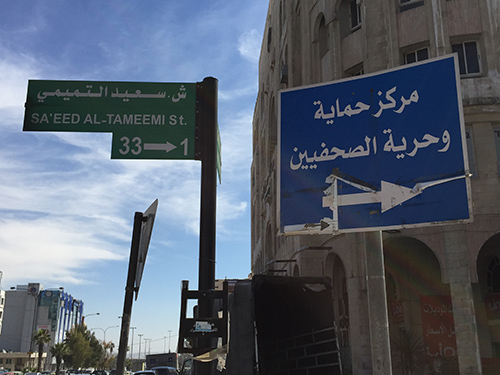
The image of Jordan as an essential international partner on the measured path of reform in a dangerous neighborhood is cultivated carefully by the government. And it’s rarely challenged in public by the U.S. and other key allies who care first and foremost about security, according to Nidal Mansour, the head of the Center for Defending Freedom of Journalists. “The Arab Spring model is gone and now in its place is [Islamic State] in Syria and Iraq,” he said. “The international community doesn’t care about human rights as it supports Jordan caught between fires.”
The U.S. State Department has documented press violations in its annual human rights reports and typically raises those issues in private meetings, but the press freedom environment is deteriorating rapidly.
As the political analyst told me, “Jordan is known for being moderate. Other countries have natural assets, but this is all we have. If we lose it, we lose everything.”
[Reporting from Amman]
Timeline of journalist arrests in Jordan
